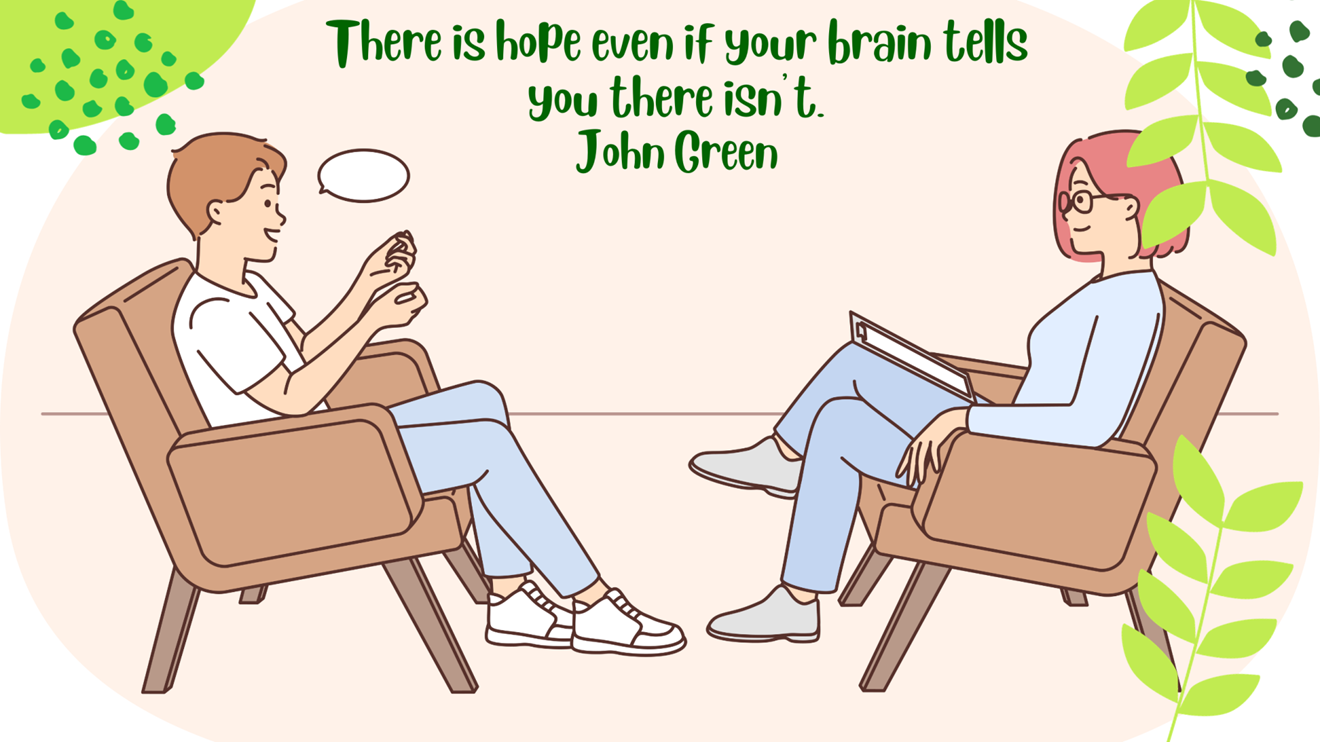


Concept of counselling
What is counselling?
It is a process where an individual, couple or family meet with a trained professional counsellor to talk about issues and problems that they are facing in their lives.
Professional counselling is confidential and non-judgmental. It is a safe and confidential collaboration between qualified counsellors and clients to promote mental health and wellbeing, enhance self-understanding, and resolve identified concerns. Clients are active participants in the counselling process at every stage.
Counselling Service of NIT Meghalaya
The counselling centre has been set up for giving counselling services to the students of NIT Meghalaya so as to enable them to communicate their experience(s), thoughts, emotions and personal difficulties or other factors causing emotional disturbances. The centre provides a positive and confidential environment where students can interact freely with the counsellors without inhibition & reluctance and be assured that there will be no prejudice or biasness in conducting the counselling sessions. The counsellor also ensures to observe, evaluate, guide the students in making appropriate changes to their lives where required and maintain a healthy relationship with the students.
Some of the possible challenges that can be addressed during the Individual and Group
Counselling sessions are as follows:
Some misconceptions about counselling
1. Counselling is only for major issues or “crazy” people
Fact: Yes, counselling can help you through major life issues and traumas but those aren’t the only situations where counselling can work for you. Sometimes we just need someone unbiased to talk to about a situation or feelings we’re having – and that’s okay. It’s normal to seek help for problems major and minor or simply when you’re not feeling quite yourself and you don’t know why.
2. Admitting that you need help and going for counselling means you’re weak.
Fact: The concept of weakness and vulnerability tend to get confused with each other. There is vulnerability in sharing what you’re going through and what you’re feeling, but that is not a sign of weakness. It is courageous to open up to someone. It’s an act of strength to take steps to better yourself when you’re not feeling your best. Vulnerability is not a weakness but rather a quality to take pride in, not be shameful of.
3. Counselling doesn’t help or will make the situation worse
Fact: Every person is different, and every person has different needs – the results from counselling are not going to be identical for everyone. But most of the time, counselling will provide you with support, new perspectives, and a plan to tackle your problems.
4. All counsellors are the same – If you didn’t have success with one, counselling won’t work for you
Fact: You don’t “click” with every single person you meet and everyone doesn’t respond the same way to the same exact form of any kind of treatment. Counsellors and counselling treatments are no different and not every counsellor will be a perfect fit for you. That’s okay. We want you to see results from your counselling experience. If after a few sessions the relationship with you and your counsellor doesn’t seem to be a match, you can request another counsellor. We promise, your counsellor will not be offended by this, on the contrary, they want the best for you. The same applies for the counselling treatment. If after a few sessions the counsellor doesn’t see the level of results expected, they will adjust treatment.
Contact us :
counselor@nitm.ac.in